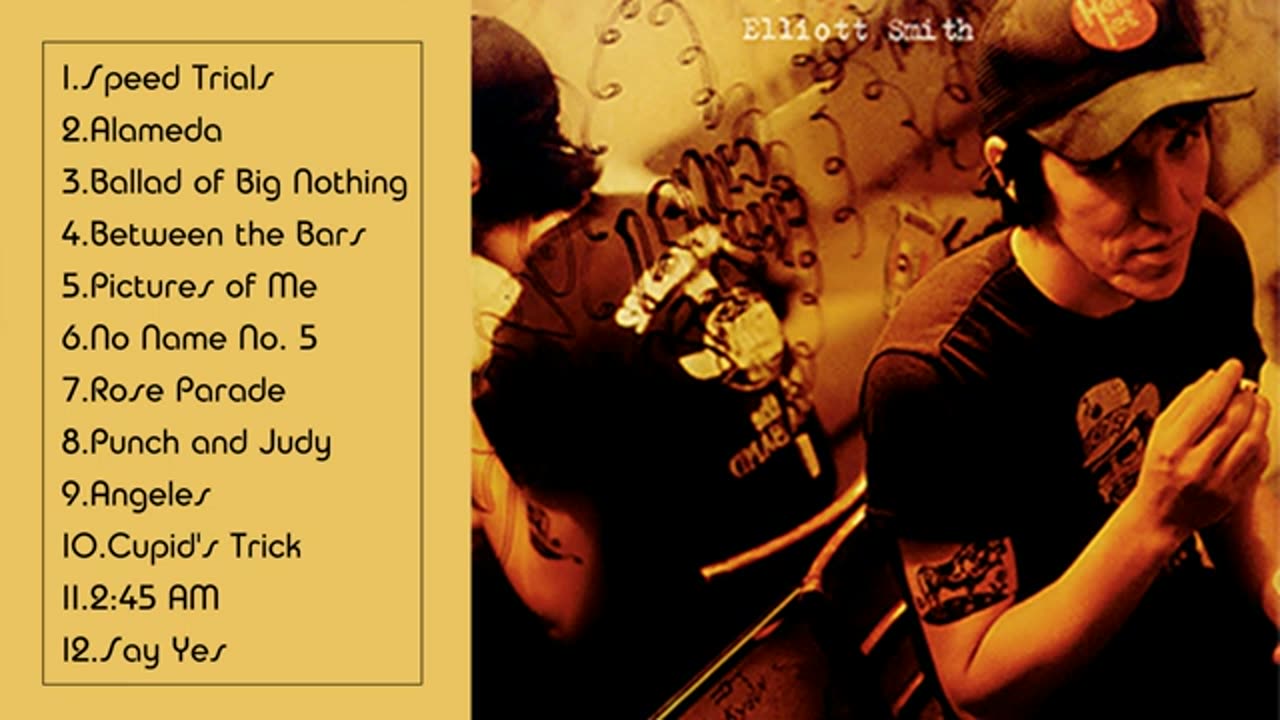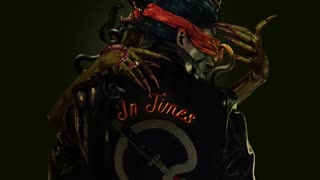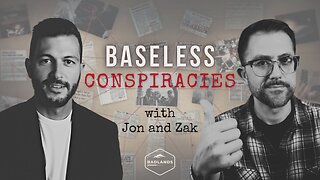Premium Only Content

ELLIOT SMITH -Either/Or
Either/Or is the third studio album by American singer-songwriter Elliott Smith. Either/Or was recorded in several locations, mostly in Portland, Oregon – while Smith was still a member of Heatmiser – and was produced by Smith, Tom Rothrock and Rob Schnapf. Either/Or was released on February 25, 1997, on the Kill Rock Stars record label, following Heatmiser's dissolution. Promoted with two singles, "Speed Trials" and "Ballad of Big Nothing", Either/Or did not chart in the US, but was acclaimed by critics.
Director Gus Van Sant was highly impressed with the album, incorporating three of its songs; "Between the Bars", "Angeles" and "Say Yes" along with a new song, "Miss Misery", into the Good Will Hunting soundtrack. "Miss Misery" was nominated for Best Original Song at the 1998 Academy Awards, and was performed at the televised ceremony in an abridged version by Smith, backed by the house orchestra, briefly propelling him into the international spotlight. In 2020, the album was ranked at 216 on Rolling Stone's 500 Greatest Albums of All Time list.
Either/Or was recorded at several locations: Joanna Bolme's house; Smith's own house; Undercover, Inc.; Laundry Rules Recording; and the Heatmiser House – all in Portland, Oregon – as well as The Shop in Arcata, California. The album was produced by Smith, Tom Rothrock and Rob Schnapf.
Smith wrote and recorded a song entitled "Either/Or" during the sessions for this album, but it was not included on the final release; however, the song was later included on New Moon, a posthumous compilation of previously unreleased material by Smith.
The album's title derives from the Søren Kierkegaard book of the same name, in which "either/or" refers to the contrast between aesthetic/subjective experience and ethical/objective being. This existential title is reflective of Smith's interest in philosophy, which he studied at Hampshire College in Massachusetts. The lyrics contain many references to Portland such as the neighborhood of Alameda, Division Street and the Portland Rose Festival.
The album's style has been described as "a bridge between the lo-fi darkness of Roman Candle and Elliott Smith and the studio sheen of XO and Figure 8."
Steven Paul Smith (August 6, 1969 – October 21, 2003), known as Elliott Smith, was an American musician and singer-songwriter. He was born in Omaha, Nebraska, raised primarily in Texas, and lived much of his life in Portland, Oregon, where he gained popularity. Smith's primary instrument was the guitar, though he also played piano, clarinet, bass guitar, drums, and harmonica. He had a distinctive vocal style in his solo career after Heatmiser, characterized by his "whispery, spiderweb-thin delivery", and often used multi-tracking to create vocal layers, textures, and harmonies that were usually finger picked and recorded with tape.
After playing in the rock band Heatmiser for several years, Smith began his solo career in 1994, with releases on the independent record labels Cavity Search and Kill Rock Stars (KRS). In 1997, he signed a contract with DreamWorks Records, for which he recorded his final two albums. Smith rose to mainstream prominence when his song "Miss Misery"—included in the soundtrack for the film Good Will Hunting (1997)—was nominated for the 1998 Academy Award for Best Original Song.
A heavy drinker and drug user, Smith was also diagnosed with attention deficit hyperactivity disorder (ADHD) and depression. His struggle with drugs and mental illness affected his life and work, and often appeared in his lyrics. He died at his Los Angeles home from two stab wounds to the chest at age 34 in 2003. The autopsy evidence did not determine whether the wounds were self-inflicted. At the time of his death, Smith was working on his album From a Basement on the Hill, posthumously produced and released in 2004.
-
 47:40
47:40
MidnightRambler
17 hours agoQueens Of The Stone Age - In Times New Roman.
2 -
 2:03:56
2:03:56
Side Scrollers Podcast
19 hours agoSmash Pro DEMANDS “Woke Echo Chamber” + EA SOLD To Saudis + More | Side Scrollers
49.5K8 -
 2:15:06
2:15:06
The HotSeat
14 hours agoSame Ole Left + What the Hell is a "BAD BUNNY"
13.9K12 -
 8:11
8:11
MattMorseTV
2 days ago $24.12 earnedTrump's DECLARATION of WAR.
68.2K120 -
 2:07:00
2:07:00
The Michelle Moore Show
1 day ago'President Trump on Radicals, Susie Wiles In Question Again, Erika Kirk Evokes More Questions, Spiritual Calamity Coming For The President?' Guest, Mark Taylor: The Michelle Moore Show (Sept 29, 2025)
26.8K58 -
 17:52
17:52
The Pascal Show
9 hours ago $2.23 earned'PARENTS DON'T BELIEVE HE DID IT!' Candace Owens Says Tyler Robinson's Parents Don't Think He Did It
10.7K6 -
 3:14:48
3:14:48
FreshandFit
15 hours agoGirl Next Door Gets EXPOSED On Onlyfans?!
262K56 -
 1:57:58
1:57:58
Badlands Media
10 hours agoBaseless Conspiracies Ep. 152: Government Shutdown Games & The Kirk Assassination Theories
84.2K10 -
 2:02:42
2:02:42
Inverted World Live
9 hours agoTrump's Medbeds | Ep. 115
97.7K19 -
 2:03:41
2:03:41
TimcastIRL
9 hours agoTrump To Deploy National Guard To Chicago, Federal TAKEOVER Begins | Timcast IRL
235K204